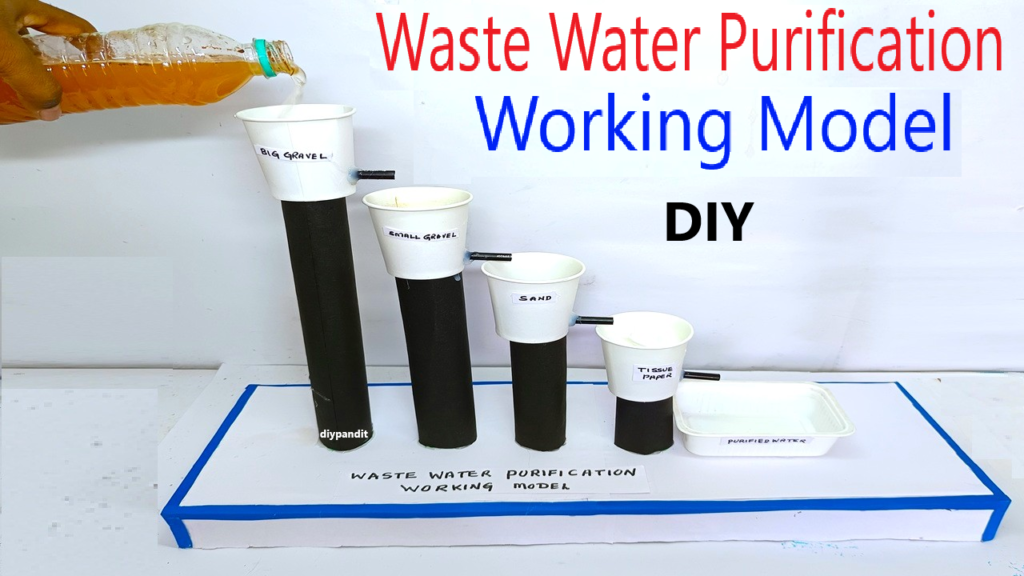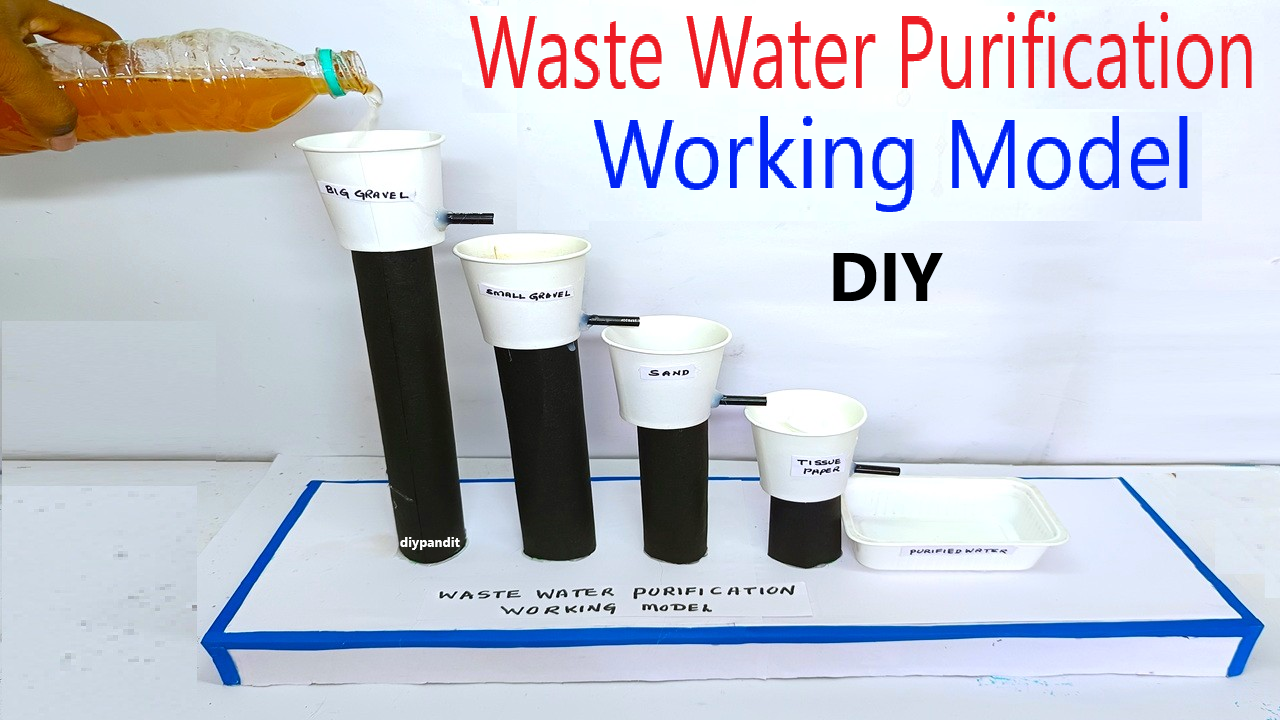A water filter working model demonstrates the process of purifying water by removing impurities and contaminants, making it safe for drinking. The model showcases a simple filtration system using various natural materials to simulate a water purification process.

Key Components of the Model:
- Container for Dirty Water: A clear plastic or glass bottle or jar holds the unfiltered, contaminated water.
- Filter Layers: Various materials are used to filter the water, such as:
- Gravel: For large particle removal.
- Sand: To remove smaller particles and impurities.
- Activated Charcoal: To absorb chemicals, odors, and toxins.
- Cotton or Coffee Filter: To catch finer particles and bacteria.
- Collecting Container: A clean container at the bottom collects the filtered water.
- Dirty Water Source: Water containing visible dirt, small particles, and impurities is poured into the filter.
How It Works(Water filter working model):
- Prepare the Filter: Stack the materials in layers inside the bottle or filtration container. Start with a layer of cotton or coffee filter at the bottom, followed by activated charcoal, sand, and then gravel at the top.
- Pour Dirty Water: Pour the contaminated water slowly into the top of the filter. The water will pass through each layer of materials.
- Filtration Process:
- Gravel filters out large debris.
- Sand catches finer particles and dirt.
- Activated Charcoal absorbs toxins, chemicals, and impurities, improving water taste and smell.
- Cotton or Coffee Filter ensures very small particles and bacteria are trapped.
- Clean Water Collection: The filtered water collects at the bottom container, now free of many contaminants.
Applications and Learning:
- Real-Life Relevance: This model shows how water filtration systems work in everyday life, from household filters to large-scale water purification plants.
- Educational Value: It teaches the importance of clean drinking water, the role of different filtration materials, and how water can be purified with simple techniques.
This hands-on model is ideal for learning about water purification and is perfect for science fairs or educational projects.

